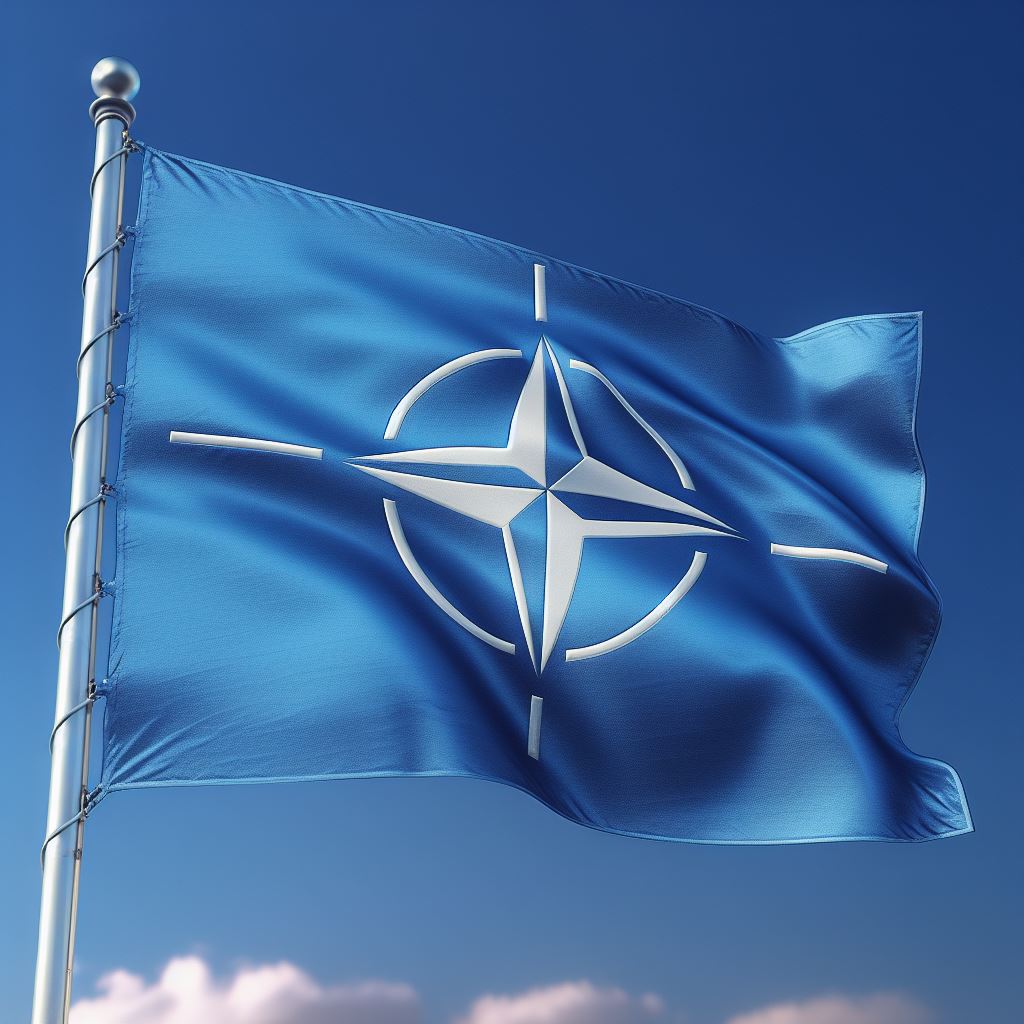Image generated by Bing Image Creator by Designer.
NATO, or the North Atlantic Treaty Organisation, is an international security group originally created to face the influence of the Soviet Union in Europe. Recent comments made in American political discourse have brought renewed attention to NATO, with questions being raised about the organisation’s relevance. Current world events make international security cooperation as important as it has ever been and necessitate a discussion of NATO’s role today. Starting with a look at its history, we will explain why NATO remains as important as ever.
NATO: Brief History
The Second World War changed the global political landscape. Old imperial powers like Britain and France, struggling with the devastating effects of the conflict, gave way to the new powers of the United States and the USSR. As early as the late 1940s, the Soviet Union emerged as the main rival to the western allies, led by the US. A number of security treaties signed after 1945 led to the North Atlantic Treaty in 1949, which created NATO.
The treaty is inherently defensive. It includes no requirement that states engage in military action when another member state is the aggressor. Article 5 of the North Atlantic Treaty states that the member states ‘agree that an armed attack against one or more of them in Europe or North America shall be considered an attack against them all’. This article of the treaty ensures that member states will all respond as one against an attack on one of the organisation’s members.
NATO offers security reassurance, with safety ensured by the united armed forces of its thirty-one members.
In its original form in the 1940s, NATO was a way that the US could maintain and expand its interests in Europe. The North Atlantic Treaty was signed in Washington D.C. in 1949, an early suggestion of the crucial role the US was to play in the organisation’s history. Security cooperation remains an important tether between the US and its European allies.
The fact that the United States military is one of the most formidable fighting forces in the world, and the security NATO members gain from this, incentivises its European allies to maintain friendly relations. In return, NATO membership allows the US to place military bases and station its troops across Europe. This is most important in the east on the Russian border as this ensures that one of West’s largest adversaries is contained.
Current Concerns: The Russian War in Ukraine
The Russian invasion of Ukraine is a reminder that we do not live in a uniquely peaceful age. As with all other generations in history, there are security concerns that have to be carefully managed. Russia is the most immediate risk facing NATO. With the biggest war on European soil since the Second World War, NATO is the key to joint security.
After the Russian invasion, Finland and Sweden moved away from their policy of neutrality and applied to join NATO. Finland became a member in April 2023. Sweden’s application has been accepted, following opposition by Turkey, and the country will become a NATO member once Hungary ratifies its accession.
The fact that these nations turned to NATO in the face of an emerging threat from the east shows the organisation’s continuing relevance. NATO offers security reassurance to these new members that they do not have outside the organisation. Longstanding members must not become complacent. They too benefit from the protection of the combined forces of NATO’s thirty-one members. With an increasingly war-like Russia, as well as other threats in the Middle East and China, this united front is essential.
NATO in the Modern World
The leaders of NATO member states have strongly opposed the comments made in America. This demonstrates the member states’ continued commitment to defend each other, reinforcing their security. This indicates that all current NATO members will remain committed to the organisation in the coming years. NATO remains a way for the United States to maintain a relationship with some of its most important and most powerful allies.
The alliance sets its members a target of spending 2% of their GDP on defence. The fact that a third of NATO members meet this target is something that should be addressed in coming years. This should be taken not as a sign that NATO should be abandoned, but that investment in the project is needed more than ever.
NATO provides immense value to European nations and continues to attract new members, who see their security as better protected as a member of the organisation. As such, NATO not only remains an important investment from the US foreign policy perspective, but also a vital security measure protecting the interests and safety of all of its member states.




One thought on “In an Increasingly Volatile World, NATO has Never Been more Important”